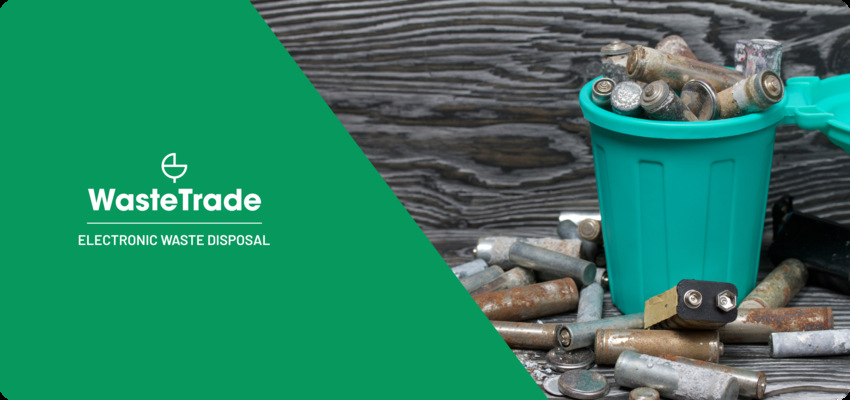Avfallshantering av elektroniskt avfall

In today’s digital era, the disposal of electronic waste has become a pressing concern due to the rapid pace of technological advancement. With older devices frequently being replaced by newer models, effective e-waste solutions are critical for reducing environmental impact and promoting sustainability. This article explores the importance of electronic disposal, strategies for recycling old electronics, and how WasteTrade, a global waste marketplace, connects buyers and sellers to facilitate responsible e-waste management. Join us as we delve into electronic waste and discover the benefits of sustainable disposal practices.
Avfallshantering av elektronik

Proper disposal of electronics in the UK is crucial to minimise environmental impact. E-waste contains hazardous components like lead, mercury, and cadmium that can contaminate soil and water if not handled correctly. Recycling old electronics through designated facilities or collection points helps mitigate these risks. Many local councils offer e-waste recycling services or organise special collection events for residents. Responsible disposal reduces pollution and preserves natural resources.
Donating old electronics to charitable organisations or refurbishing them for resale extends their lifespan and supports sustainability. Many charities accept working electronics, benefiting those in need while diverting e-waste from landfills. Businesses specialising in refurbishing and reselling second-hand electronics offer cost-effective alternatives to buying new devices. Embracing these sustainable disposal methods supports a circular economy and promotes environmentally friendly e-waste management.
By adopting these practices and supporting e-waste recycling initiatives, individuals and organisations can play a vital role in reducing the environmental impact of electronic waste and fostering a sustainable future.
Avfallshantering av elektronik

Electronic disposal, or e-waste recycling, is an urgent environmental issue that requires immediate attention. The proliferation of electronic devices has led to a significant increase in electronic waste, which contains hazardous materials like lead, mercury, and cadmium. Improper disposal can result in these toxins leaching into soil and water, posing serious health risks to humans and wildlife.
Proper disposal and recycling of electronic devices are essential to mitigate these risks. Many countries have established e-waste recycling programmes to encourage responsible disposal of old electronics. These programmes aim to recover valuable materials from electronic devices, reducing the need for raw material extraction and minimising environmental impact. By raising awareness and participating in these initiatives, we can all contribute to protecting our planet for future generations.
E Avfallslösningar
Electronic waste poses a significant environmental challenge in the modern world. With the rapid turnover of electronic devices, managing e-waste is crucial. Recycling is a key strategy, involving the breakdown of devices and repurposing their components. Many countries have implemented e-waste recycling programmes to prevent electronics from ending up in landfills.
Product stewardship is another effective solution, where manufacturers take responsibility for their products throughout their lifecycle. This encourages the design of easily repairable, upgradeable, and recyclable products, reducing the environmental impact. Electronic take-back programmes promote the return of old devices to manufacturers for proper disposal or recycling. Implementing these solutions helps mitigate the environmental impact of e-waste and supports a sustainable future.
Återvinning av gammal elektronik
Recycling old electronics is increasingly important as electronic waste grows. Responsible disposal of gadgets like smartphones, laptops, and tablets reduces environmental impact. Recycling recovers valuable materials like gold, silver, and copper, decreasing the need for raw material extraction.
Many local councils and electronic retailers in the UK have established recycling programmes, making it easier for individuals to dispose of their old electronics sustainably. These programmes often include drop-off points for recycling old devices. Some manufacturers offer trade-in schemes, allowing customers to exchange old devices for discounts on new purchases. Encouraging electronic recycling initiatives helps reduce e-waste and protect our planet for future generations.
